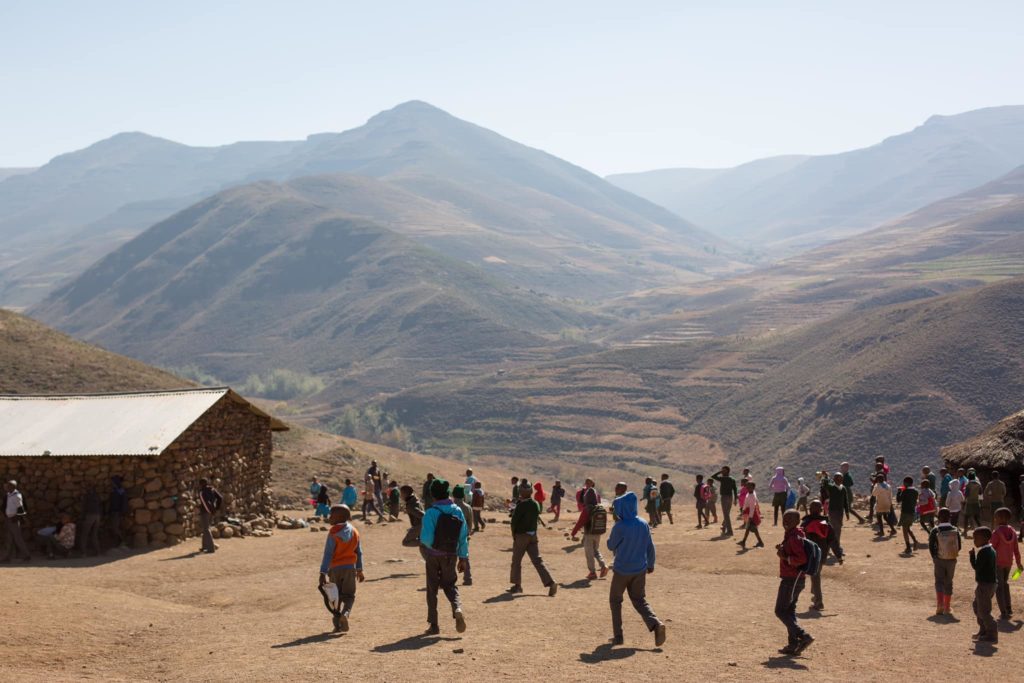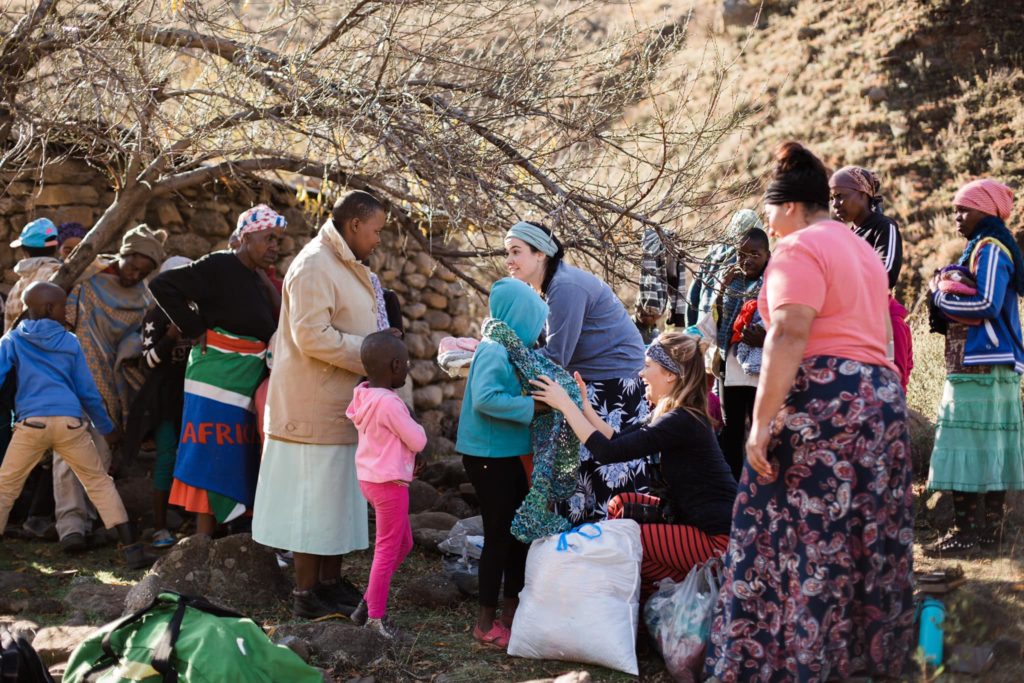

ROANOKE, Va. – Despite the travel limitations imposed by the COVID-19 pandemic, First Baptist Church of Roanoke, Va., maintained its relationship with a particular people group in Lesotho, Africa and is gearing up to return as soon as mission teams are able.
First Roanoke had been taking small groups of church members, usually fewer than 10 people, to minister in the Makanyaneng Valley in Lesotho a few times per year since 2015. As a result of the continuing ministry of those church teams, a group of believers in the valley regularly meets to read the Bible and pray.
Brent Cummings, minister to young adults at First Roanoke, said the church planned to return to Lesotho to raise up a pastor and finalize the formation of a local church in the valley.
The pandemic put a pause on those plans in early 2020.
“We were certainly disappointed and frustrated because we knew we had a group of young believers and we wanted to disciple them and help them grow in their faith, and we didn’t want them to think we had forgotten about them,” Cummings said.
Church members began using technology as a means to continue the connection and foster the growing relationship with the people of Lesotho. Members of First Roanoke continue to send messages to people in valley in Lesotho through Facebook Messenger and WhatsApp as a means to disciple and encourage them.
Cummings said the messages were not of generic encouragement, but ongoing conversations between church members and Lesotho residents. The intentional connection through technology was because of First Roanoke’s desire to go beyond the surface-level relationship one might have after a one-time mission trip. First Roanoke’s intent is to metaphorically ‘adopt’ this valley in Lesotho as its own.

“Jesus called us in the Great Commission to make disciples, not just intellectual converts, and so we truly want to make life-long disciples of Jesus,” Cummings said. “When you go there and you see the need, it just compels you to continue to go back. There was a very real element that we realized of, ‘If we don’t go who will go?’ These people will be born and live their lives and they will never hear the name of Jesus. We just knew we had to be the church to adopt this valley.”
Daren Davis, the affinity groups leader for Sub-Saharan Africa for the International Mission Board, said United States churches have used a variety of methods to continue international ministry including messages, video chats and financial support of SBC entities such as IMB and Send Relief.
“Many churches essentially said, ‘We can’t go, but we still want to carry out the Great Commission,’ and churches found ways to do that even though they couldn’t put their boots on the ground,” Davis said.
As COVID-related restrictions begin to wind down around the world, Davis encouraged churches that while one-time international mission trips can be great, an intentional, ongoing effort targeted to a specific area can be all the more fruitful.
“A long-term, consistent relationship has a deep and more far-reaching impact when it comes to this type of partnership,” Davis said. “Discipleship really does require a deeper relationship where people learn and grow with one another.”
First Roanoke was originally connected to the Makanyaneng Valley in Lesotho by IMB missionaries Jim and Teresa Flora.
It was the Floras’ dream to have churches stateside adopt certain valleys in Lesotho. They accompanied many of the First Roanoke trips there during the past few years. Jim Flora passed away in May 2021 at the age of 63 after a battle with cancer.
Davis said seeing a Lesotho valley adopted by a U.S. church is an answer to prayer.
“I remember standing on the side of the road looking down a valley and praying with Jim that U.S. churches would adopt that valley,” Davis said. “The valley that First Roanoke adopted is very similar to that valley. They (the Floras) helped train First Baptist Roanoke, and the church is now walking through what it takes to engage a particular people group.”

Cummings said he and his wife wrestled with the fact that God might be calling them to be the new stateside liaison for this area of Lesotho. He said they wanted to lead their church in accomplishing the missionary goals the Floras had a passion for.
“We caught the vision and we wanted to carry on that legacy and do what they set out to do,” Cummings said.
Davis said churches that desire this type of relationship with a specific people should start by connecting with any existing connections with IMB missionaries they might have, but also to check out the IMB’s 55 in 5 initiative, aimed at engaging 55 unreached people groups in Sub-Saharan Africa by the year 2025.
He said local churches represent the key in reaching the lost around the world, whether they are stateside and ‘adopting’ specific people groups in other countries, or international churches ministering on the ground in their own land.
“The local church is central to what God wants to do in engaging the nations, and it is churches who send out missionaries,” Davis said. “We believe one of the characteristics of a healthy church is the sending out of missionaries, and our desire as the IMB is to serve Southern Baptist churches as together we carry out the Great Commission.”
















